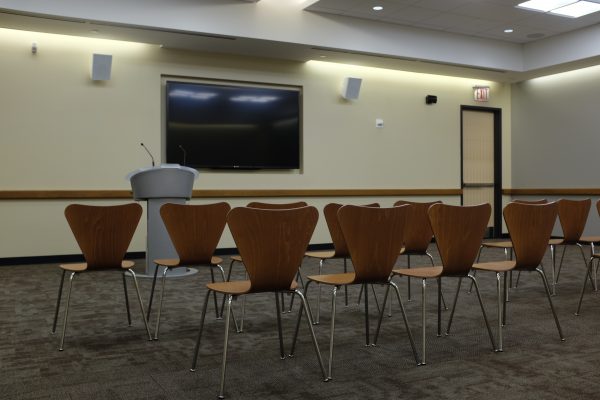The Low Attendance Rates Plaguing Fordham
March 29, 2017
Fordham Lincoln Center proudly boasts a vast array of clubs and activities spread throughout the week and now thanks to LC After Dark, there are events during the weekends. Unfortunately, many of the clubs and organizations hosting these events are running into a major issue: not enough people are showing up.
At many events over the course of the academic year, attendance has been extremely low, and has become the subject of frequent discussion amongst student leaders.
Normally, low student participation is expected in student government bodies, like USG and RHA, granted there are high turnouts at events like Winter Ball and the Bash. While thus far these events still boast high attendance rates, other Fordham activities and club events have seen diminished turnouts. This discussion came to the forefront last year during the Diversity Task Force community meetings, which had low attendance rates. At the time, students believed the reason was a lack of trust between the students and the administration that anything would be accomplished by such meetings.
Such a belief and a lack of attendance is disconcerting because it jeopardizes the future of the Fordham community and of the university as a whole. As members of the Fordham Community, our participation in student government and events determines whether or not any of these will be a success.
In the past academic year, this campus has seen a surge in student activism. Over a hundred members of the Fordham community, whether they are students, faculty, or staff, have turned out to different protests to challenge decisions made by the university and to advocate for inclusivity and myriad policies. Public demonstrations have almost become the norm here, with protests on the plaza becoming a more common sight.
At the same time, however, USG meeting attendance rates remain abysmal, with only a handful of non-USG members attending general meetings on any given week. Additionally, other club events have seen attendances so low that they leave the organizers and participants embarrassed by the apparent lack of interest.
Initiatives to introduce more of a student voice into administrative and faculty decisions have been aborted due to a lack of student participation. The Arts & Sciences Student Advisory Council, which is in place to give students to have more input and communication with deans and department heads, was cancelled this year due to repeatedly poor turnouts from students who had initially indicated that they would participate. Some could argue that lack of willingness from the student body to voice is their opinion is that they will be vetoed or overpowered by administrators.
The question here is: where does participation matter, and how reliant is it on students being actively involved in the Fordham community?
The short answer is that being actively involved does matter. Just as being active citizens in our hometowns and states is important, so too is being an active member of the Fordham community. The protests are a start, but we cannot expect any real improvement to the Fordham community, until we start helping each other and supporting one another more. Trying to have clubs and organizations live in isolated spheres will only harm our community and leave us all at a disadvantage. Also, choosing to isolate ourselves from social activities will affect the growth and development of new clubs.
Many club events on campus are designed to be informative, like the Refugee Experience, or to be a fun social outlet, like Winterfest. The posting boards around campus are littered with flyers that advertise different events, but if no one attends it affects the morale of club leaders who are trying to better the Fordham community.
The recent protest on campus on Trump’s executive order on immigration was a prime example of how student organizations can come together to work towards and address a commonly agreed upon issue. Similarly, the Pies for Charity event brought together clubs such as the Muslims Students Association, the Jewish Students Organization, Stove’s Comedy Club and United Student Government together to achieve a common goal of raising money for Syrian refugees.
At a time of division in this country and increasingly throughout the world, this kind of collaboration is what we need to the most of in the Fordham community. There are plenty of issues to be addressed and solved, but it can only be solved if we all work togehter. Try collaborating with different student clubs and organizations on campus, and show up to each others’ events as much as you can. Doing so will forge trust between students and clubs, creating stronger groups to accomplish the common goals which they desire to achieve, and ultimately create a better Fordham community.













CLC '81 • Sep 14, 2017 at 10:06 pm
LC was a commuter school when I went here. We had other things to do besides college extracurriculars. This is, after all, NYC. I suspect students who come here now, especially the residents, come here more for NYC than for a college experience, as such. That’s for the kids on RH.